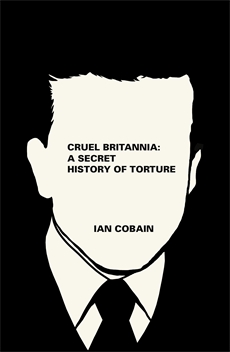Why Britain Has Blood On Its Hands
By Ian Cobain -November 22, 2012
How did the British government get involved in the torture of its own citizens?
 When the US and its allies went to war in Afghanistan in 2001, it was inevitable that a small number of those captured on the battlefield would be British. For more than a decade, MI5 had been aware that British Muslims had been travelling to Pakistan and Afghanistan in what it saw as a form of jihadi tourism that posed no threat to the UK. All that changed after 9/11.
When the US and its allies went to war in Afghanistan in 2001, it was inevitable that a small number of those captured on the battlefield would be British. For more than a decade, MI5 had been aware that British Muslims had been travelling to Pakistan and Afghanistan in what it saw as a form of jihadi tourism that posed no threat to the UK. All that changed after 9/11.
Among the Britons who were picked up in the wake of the attacks was a man called Jamal al-Harith. Born Ronald Fiddler in Manchester in 1966, Harith had converted to Islam in his 20s and travelled widely in the Muslim world before arriving in Afghanistan. After 9/11, he had been imprisoned by the Taliban, who suspected him of being a British spy. At one point he and several other prisoners were forced to share their large cell with a horse that had offended a local Taliban leader in some ill-defined way. A British journalist found Harith languishing in the prison in January 2002 and alerted British diplomats in Kabul, believing they would arrange his repatriation. Instead, they arranged for him to be detained by US forces, who took him straight to an interrogation centre at Kandahar.
Harith then spent two years at Guantánamo, being kicked, punched, slapped, shackled in painful positions, subjected to extreme temperatures and deprived of sleep. He was refused adequate water supplies and fed on food with date markings 10 or 12 years old. On one occasion, he says, he was chained and severely beaten for refusing an injection. He estimates he was interrogated about 80 times, usually by Americans but sometimes by British intelligence officers.
Nine months after his release, Harith issued a statement in which he said he was still in pain as a result of the beatings he received before interrogation. “The irony is that when I was first told in Afghanistan that I would be in the custody of the Americans, I was relieved. I thought that I would then be properly dealt with and returned home without much delay.”
Cruel Britannia: A Secret History Of Torture, by Ian Cobain, published next month by Portobello Books at £18.99. To order a copy for £15.19, with free UK mainland p&p, go to guardian.co.uk/bookshop or call 0330 333 6846.
A number of US Department of Defense documents leaked several years later showed that, like other men who were rounded up and taken to Guantánamo, Harith was there not because he was thought to be dangerous, but because the information he possessed was considered useful. Harith’s file shows that he was sent to Guantánamo “because he was expected to have knowledge of Taliban treatment of prisoners and interrogation tactics”. Eighteen months later, the camp authorities had satisfied themselves that he had no connection with the Taliban or al-Qaida, but decided against releasing him because his “timeline has not been fully established” and because British diplomats who had seen him in Kandahar had found him to be “cocky and evasive”.
In all, nine British nationals were sent to the maximum-security prison at Guantánamo, along with at least nine former British residents. All were incarcerated for years, and from the moment they arrived they suffered beatings, threats and sleep deprivation. All were interrogated by MI5 officers and some also by MI6. When Harith was eventually released, along with three men from the West Midlands known as the Tipton Three, a man called Martin from the Foreign Office was waiting for them as they boarded the plane home. “Can you,” he asked, “make sure you say you were treated properly?”
Martin’s boss, foreign secretary Jack Straw, was particularly concerned that the wider world should never learn of the extent to which the British government had become involved in the torture of its own citizens at Guantánamo. In December 2005, the full truth about British complicity in rendition and torture was still such a deeply buried official secret that Jack Straw felt able to reassure MPs on the Commons foreign affairs committee about the allegations starting to surface in the media. “Unless we all start to believe in conspiracy theories,” he said, “and that the officials are lying, that I am lying, that behind this there is some kind of secret state which is in league with some dark forces in the United States… there simply is no truth in the claims that the United Kingdom has been involved in rendition.”

